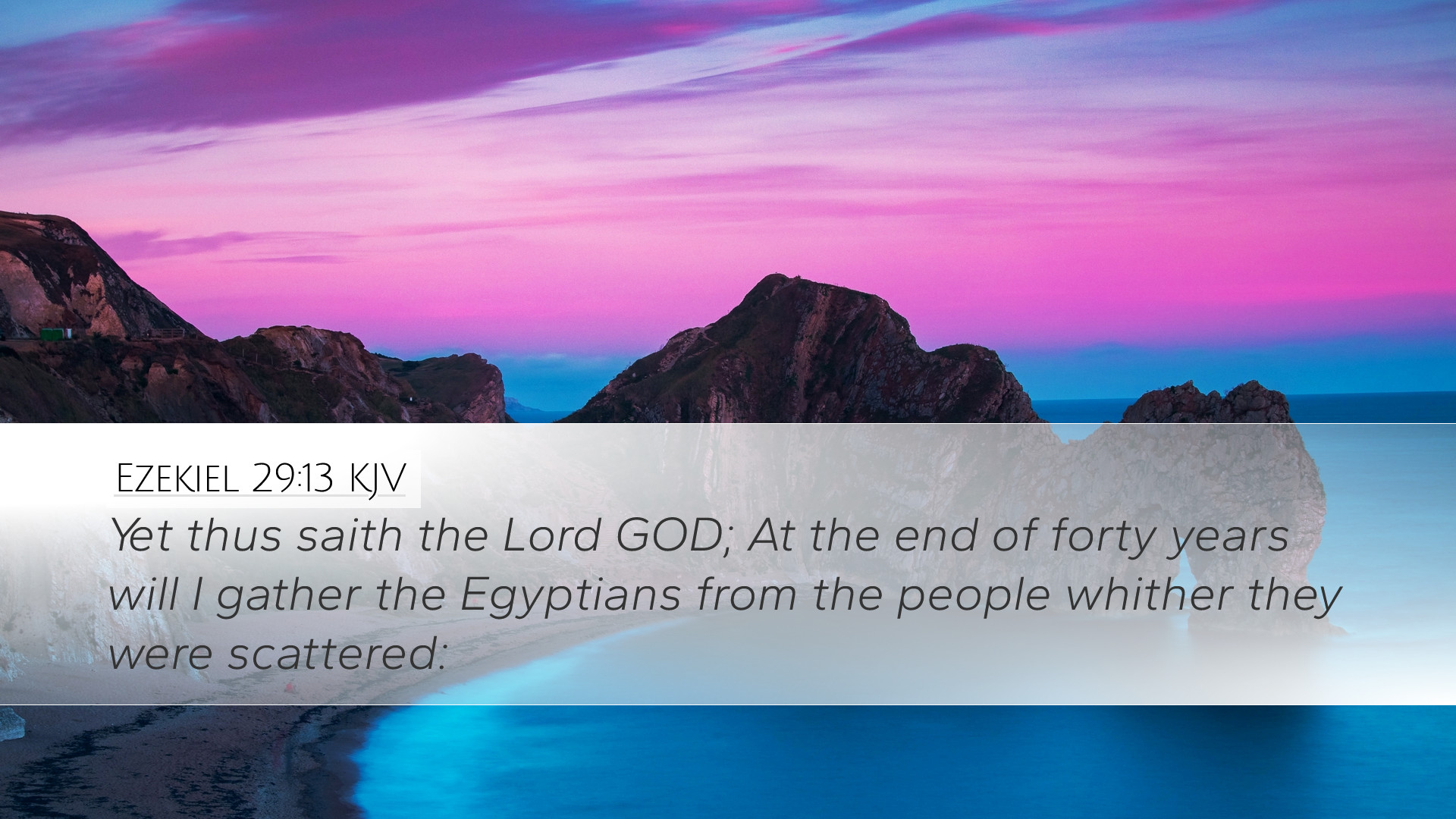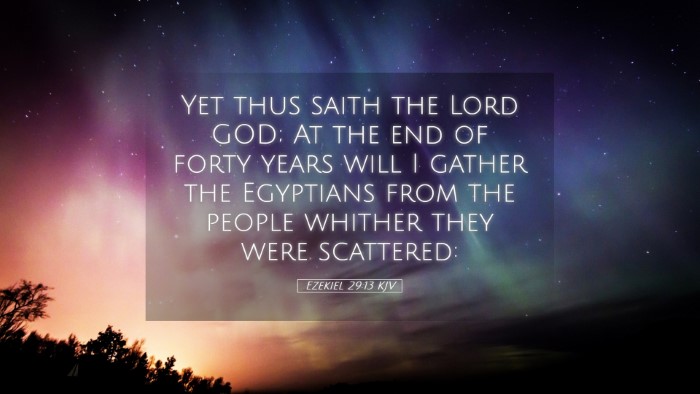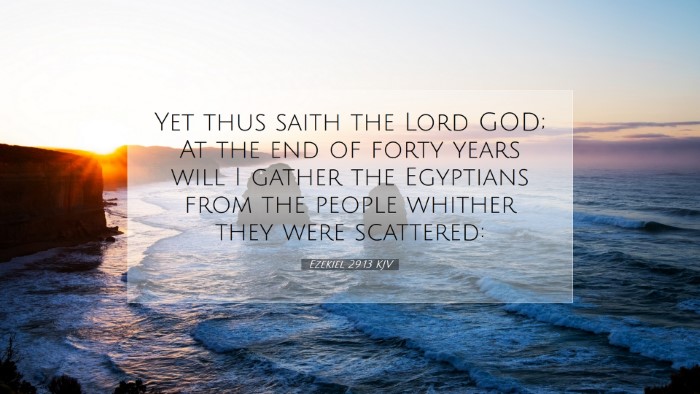Bible Commentary on Ezekiel 29:13
Introduction
Ezekiel 29:13 presents a critical insight into the prophetic message concerning Egypt’s future and its role in God's plan for the nations. The verse reads:
"Yet, thus says the Lord God: At the end of forty years I will gather the Egyptians from the peoples among whom they were scattered."
This verse encapsulates themes of restoration, divine judgment, and the sovereignty of God over national destinies. The insights gathered from public domain commentaries enrich our understanding of this text and its implications for both the ancient context and modern application.
Contextual Analysis
The backdrop of Ezekiel’s prophecy is essential for understanding this verse. After a prophesied judgment against Egypt, the restoration promise made by God serves to affirm His ultimate control over history and nations.
-
Historical Context:
The significance of Egypt during the times of the prophets cannot be understated, as it was a major power. Ezekiel's role as a prophet in exile meant that his messages also dealt with the geopolitical realities faced by the Israelites in Babylon.
-
Thematic Relevance:
The themes include judgment (for pride and idolatry), restoration, and the difficulty of God's people being aware of His redemptive plans amidst their sufferings and losses.
Insights from Matthew Henry
Matthew Henry's commentary emphasizes the clarity of God’s word to nations. He points out that God's judgment on Egypt was a fulfillment of prophecy, demonstrating that God holds nations accountable for their actions.
"The severity of God's judgment is as great as the care He shows in restoration; for the former emphasizes His holiness while the latter showcases His mercy."
Furthermore, Henry believes that the forty years mentioned are not just a period of punishment but a time of preparation and eventual restoration, which illustrates God's long-term view of redemption.
Albert Barnes' Perspective
Albert Barnes correlates the gathering of the Egyptians with God’s promise of deliverance. He remarks that the prophesied regathering signifies the eventual return of scattered peoples and the re-establishment of a once-proud nation that had fallen from grace.
"This gathering is indicative of God's power to rejuvenate and restore even those who have experienced the depth of national disgrace.”
Barnes also addresses the significance of "forty years" as indicative of a complete period of judgment, pointing towards a divine strategy that encompasses both punishment and the potential for revival.
Adam Clarke's Interpretation
Adam Clarke highlights the geopolitical implications of the verse, drawing attention to how the Israelites would perceive God’s actions toward Egypt. He notes that the Egyptians would indeed be restored to their land, but it would not be a restoration to former glory or power.
"The Egyptians may be gathered, but they will never again reach the heights of their former empire, signifying that judgment drastically alters the trajectory of nations.”
Clarke’s analysis invites readers to ponder the broader implications of God’s justice and mercy, particularly in relation to how nations reckon with their histories and the injustices they have committed.
Theological Reflections
As we draw together the insights from various commentators, several theological reflections emerge from Ezekiel 29:13:
-
Divine Sovereignty:
This verse underscores God’s sovereign control over the nations. Even in judgment, He maps out a plan for restoration, reminding us that no nation falls outside of His purview.
-
Judgment and Mercy:
God's judgment does not preclude His mercy. The forty years of punishment may seem long, but it is a phase leading towards a greater outworking of His redemptive purpose.
-
Hope for the Restoration:
For theologians and students, the assurance of restoration is a key takeaway. God’s engagement with nations reveals His intention to bring restoration even after judgment, providing hope for the future.
Conclusion
Ezekiel 29:13 serves as a reminder of the intricate balance between judgment and restoration in God’s dealings with nations. The insights of Matthew Henry, Albert Barnes, and Adam Clarke present a layered understanding of the text that is relevant for pastors, students, and scholars alike. As we ponder this verse, we are called to recognize both the justice of God and the hope inherent in His promises.


